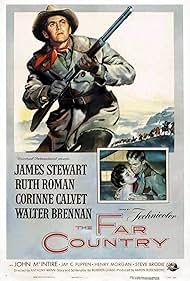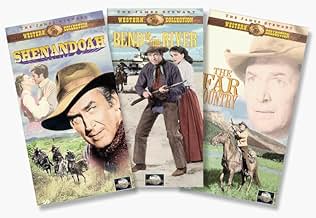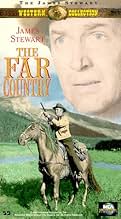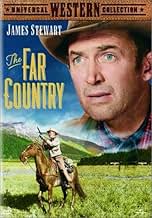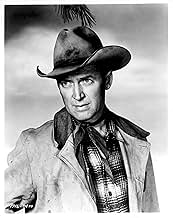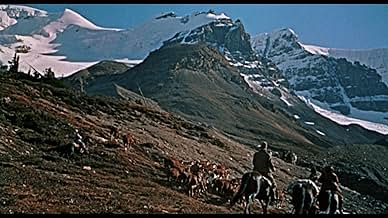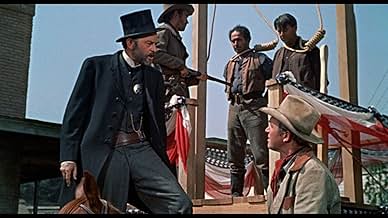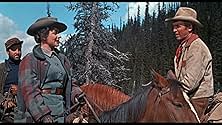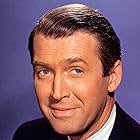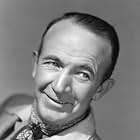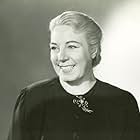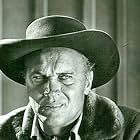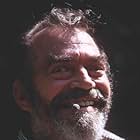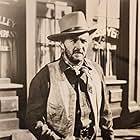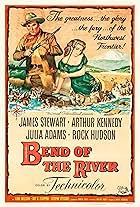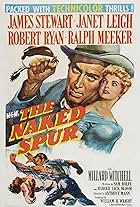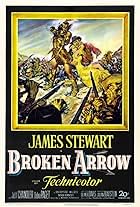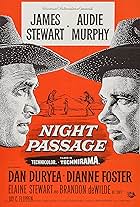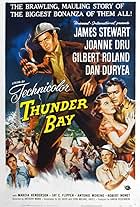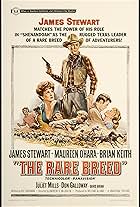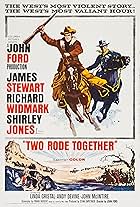IMDb RATING
7.1/10
9.2K
YOUR RATING
A self-minded adventurer locks horns with a crooked lawman while driving cattle to Dawson.A self-minded adventurer locks horns with a crooked lawman while driving cattle to Dawson.A self-minded adventurer locks horns with a crooked lawman while driving cattle to Dawson.
Harry Morgan
- Ketchum
- (as Henry Morgan)
Robert J. Wilke
- Madden
- (as Robert Wilke)
Emile Avery
- Miner
- (uncredited)
Gregg Barton
- Rounds
- (uncredited)
- Director
- Writer
- All cast & crew
- Production, box office & more at IMDbPro
Featured reviews
Now, admittedly, I'm no ardent student of the genre. As a matter of fact, I've tended always to shy away from Westerns because, in spite of all their critical cachet as America's primal stories (or whatever), they seem to me to forever devolve into tiresome retreads of either "shoot up the Injuns," "the big gunfight," or "Hey, let's form a posse!" In other words, it always seemed to me a genre so rooted in and tied to convention, that it left precious little room for surprise or originality. (And yes, I HAVE seen at least some of the so-called "greats", and unapologetically lump them into this negative assessment - including Stagecoach, Rio Bravo, My Darling Clementine, and of course the infamous [but profoundly dull] Clint Eastwood-Sergio Leone teamups in the '60s.)
But when I saw this movie on TV - as part of a commemorative Jimmy Stewart weekend upon his death - I finally GOT IT: I understood, at least in theory, what the Western mythos has to offer as a serious thematic preoccupation (aside from just action and thrills). It is the push-pull between lawlessness and order; the American West represented freedom, but also the prospect of the wild, the untamed. Respectable folk could get hurt out there. Which, of course, meant that perhaps - just perhaps - it wasn't meant for respectable folk, and that the only residents should be the amoral and the shifty, those who dispensed justice strictly from the barrel of their revolvers, and where kill or be killed would ever be the law of the land. In such an environment, of course, the true heroes are the ones who are ornery and free-spirited enough to be out there in the first place (and so reject "society," at least as it manifested itself on the Eastern seaboard), and yet have enough sense of justice to believe that a society based on chaos and fear just IS NOT RIGHT. Catching and examining that disparity between law and disorder IN THE MAIN CHARACTER HIMSELF is, I believe (after seeing this movie), the highest and truest goal of any Western. Sadly, it is so often not the case, as the white hats are completely white, the black ones completely black (and let's not even get started talking about the Indians, ok) and there is precious little shades of gray in between.
Not in this one. Jimmy Stewart plays a blatant fortune hunter who follows the trail of miners before him into the Alaskan wilderness to prospect for gold. He is joined in this by his lifelong buddy, played by Walter Brennan (perhaps the Western cliché character to end them all - but nevertheless enjoyable here, as always) - and no one else. Pointedly, they are out for themselves, and while Stewart displays his patented charm (come on, we could never really dislike the guy, now could we?), we are left with little doubt that his is basically a self-centered, self-interested character: none of his "Gosh" or "Oh golly gee" humanism is allowed to come through. Or, rather, it has to be EARNED, by the end of the picture, in the way I described above. He must confront the lawlessness in himself, and weigh it against the need for order and justice which are so blatantly lacking in the border town which serves as the miners' starting point on their gold dust trail. This town is ruled tightly by its wicked sheriff, Mr. Gannon, played by John McIntire in one of the best "bad guy" performances I've ever seen. He comes on with so much charm and humor, and has such a relaxed and interesting rapport with Stewart, that it actually takes awhile to recognize that he *is* the bad guy - so that when it finally sinks in, it does so with double force. Further, by establishing a type of breezy (if necessarily guarded) camaraderie between McIntire and Stewart, the film plays up the notion of how close in temperament they really are - and so how far a moral distance Stewart must walk by the end of the film.
I won't go through all the twists and turns the plot takes - see those for yourself (as well as the rugged and gorgeous Alaskan scenery - filmed on location, mind you, not cheap painted stills that the studio made up). What's key here is how much this story focuses upon character, with great dialogue and character interaction substituting for gunplay much of the time - although the film has just enough action and adventure to prevent it from ever being static (read: "talky"). Definitely one of the greatest performances I've seen from Stewart, showing he could play the renegade, the "man's man" just as convincingly as the decent and upright guy next door. If anything, in fact, his "everyman" qualities lend greater strength to his characterization, making him seem less mythic or overblown - -like, say, Eastwood or John Wayne - and more a three-dimensional personage. His relationship with Brennan is well-played: understated, but nevertheless touching (with a faint suggestion of George and Lenny from "Of Mice and Men" - an altogether different type of "western").
I certainly have more Westerns to see, but this is for now my favorite, and the yardstick by which I will necessarily judge all the others. It deserves to be much better known and appreciated than it is.
But when I saw this movie on TV - as part of a commemorative Jimmy Stewart weekend upon his death - I finally GOT IT: I understood, at least in theory, what the Western mythos has to offer as a serious thematic preoccupation (aside from just action and thrills). It is the push-pull between lawlessness and order; the American West represented freedom, but also the prospect of the wild, the untamed. Respectable folk could get hurt out there. Which, of course, meant that perhaps - just perhaps - it wasn't meant for respectable folk, and that the only residents should be the amoral and the shifty, those who dispensed justice strictly from the barrel of their revolvers, and where kill or be killed would ever be the law of the land. In such an environment, of course, the true heroes are the ones who are ornery and free-spirited enough to be out there in the first place (and so reject "society," at least as it manifested itself on the Eastern seaboard), and yet have enough sense of justice to believe that a society based on chaos and fear just IS NOT RIGHT. Catching and examining that disparity between law and disorder IN THE MAIN CHARACTER HIMSELF is, I believe (after seeing this movie), the highest and truest goal of any Western. Sadly, it is so often not the case, as the white hats are completely white, the black ones completely black (and let's not even get started talking about the Indians, ok) and there is precious little shades of gray in between.
Not in this one. Jimmy Stewart plays a blatant fortune hunter who follows the trail of miners before him into the Alaskan wilderness to prospect for gold. He is joined in this by his lifelong buddy, played by Walter Brennan (perhaps the Western cliché character to end them all - but nevertheless enjoyable here, as always) - and no one else. Pointedly, they are out for themselves, and while Stewart displays his patented charm (come on, we could never really dislike the guy, now could we?), we are left with little doubt that his is basically a self-centered, self-interested character: none of his "Gosh" or "Oh golly gee" humanism is allowed to come through. Or, rather, it has to be EARNED, by the end of the picture, in the way I described above. He must confront the lawlessness in himself, and weigh it against the need for order and justice which are so blatantly lacking in the border town which serves as the miners' starting point on their gold dust trail. This town is ruled tightly by its wicked sheriff, Mr. Gannon, played by John McIntire in one of the best "bad guy" performances I've ever seen. He comes on with so much charm and humor, and has such a relaxed and interesting rapport with Stewart, that it actually takes awhile to recognize that he *is* the bad guy - so that when it finally sinks in, it does so with double force. Further, by establishing a type of breezy (if necessarily guarded) camaraderie between McIntire and Stewart, the film plays up the notion of how close in temperament they really are - and so how far a moral distance Stewart must walk by the end of the film.
I won't go through all the twists and turns the plot takes - see those for yourself (as well as the rugged and gorgeous Alaskan scenery - filmed on location, mind you, not cheap painted stills that the studio made up). What's key here is how much this story focuses upon character, with great dialogue and character interaction substituting for gunplay much of the time - although the film has just enough action and adventure to prevent it from ever being static (read: "talky"). Definitely one of the greatest performances I've seen from Stewart, showing he could play the renegade, the "man's man" just as convincingly as the decent and upright guy next door. If anything, in fact, his "everyman" qualities lend greater strength to his characterization, making him seem less mythic or overblown - -like, say, Eastwood or John Wayne - and more a three-dimensional personage. His relationship with Brennan is well-played: understated, but nevertheless touching (with a faint suggestion of George and Lenny from "Of Mice and Men" - an altogether different type of "western").
I certainly have more Westerns to see, but this is for now my favorite, and the yardstick by which I will necessarily judge all the others. It deserves to be much better known and appreciated than it is.
Cowboys James Stewart and Walter Brennan take their herd from Seattle to Alaska and on into Canada to stake a claim. Once there, they have to contend with seductive, shifty businesswoman Ruth Roman and ice-cold, happy-go-lucky villain James McIntire.
John Wayne may get talked about more, but his good pal Stewart made some excellent, hard-edged westerns too, some with the great director Anthony Mann. Frankly, I'd take this, with it's sturdy action sequences and fine melodrama, over North To Alaska any day!
The Far Country features some breathtaking scenery and cinematography that should definitely have been shot in widescreen.
Also, there's some strong support by the always reliable Brennan, Roman (who's great), the incredibly cute Corrine Calvet, and James McIntire, who plays one of my favorite types of bad guy, the kind that doesn't take himself too seriously.
This would make a great double-bill with another highly recommended Mann/Stewart northwest-set western, Bend Of The River.
John Wayne may get talked about more, but his good pal Stewart made some excellent, hard-edged westerns too, some with the great director Anthony Mann. Frankly, I'd take this, with it's sturdy action sequences and fine melodrama, over North To Alaska any day!
The Far Country features some breathtaking scenery and cinematography that should definitely have been shot in widescreen.
Also, there's some strong support by the always reliable Brennan, Roman (who's great), the incredibly cute Corrine Calvet, and James McIntire, who plays one of my favorite types of bad guy, the kind that doesn't take himself too seriously.
This would make a great double-bill with another highly recommended Mann/Stewart northwest-set western, Bend Of The River.
Mann photographs the Alberta Rocky Mountains in a superb fashion, and Jimmy Stewart and Walter Brennan give enjoyable performances as they always seem to do.
But come on Hollywood - a Mountie telling the people of Dawson City, Yukon to elect themselves a marshal (yes a marshal!) and to enforce the law themselves, then gunfighters battling it out on the streets for control of the town?
Nothing even remotely resembling that happened on the Canadian side of the border during the Klondike gold rush. Mr. Mann and company appear to have mistaken Dawson City for Deadwood, the Canadian North for the American Wild West.
Canadian viewers be prepared for a Reefer Madness type of enjoyable howl with this ludicrous plot, or, to shake your head in disgust.
But come on Hollywood - a Mountie telling the people of Dawson City, Yukon to elect themselves a marshal (yes a marshal!) and to enforce the law themselves, then gunfighters battling it out on the streets for control of the town?
Nothing even remotely resembling that happened on the Canadian side of the border during the Klondike gold rush. Mr. Mann and company appear to have mistaken Dawson City for Deadwood, the Canadian North for the American Wild West.
Canadian viewers be prepared for a Reefer Madness type of enjoyable howl with this ludicrous plot, or, to shake your head in disgust.
This, the last of the five Westerns directed by Anthony Mann and starring James Stewart is also the third of their collaborations in this particular genre with screen writer Borden Chase and typifies the characters and conflicts associated with Chase's work as well as featuring stunning cinematography of its Canadian locations by veteran William H. Daniels.
Chase's 'Dr. Broadway' had provided the basis for Mann's first film and Mann had been suggested by Stewart to direct 'Winchester '73' after Fritz Lang had pulled out, feeling that Stewart was unsuitable casting(!) These three were made for each other with Borden's writing and Mann's direction perfectly suited to Stewart's tougher, more cynical post-war persona.
An outstanding element in Mann's westerns is the sometimes uneasy relationships between men and women in a milieu of action and violence and this film is certainly no exception with a fascinating dynamic between the equally self-willed characters played by Stewart and Ruth Roman whilst Stewart is particularly gifted at portraying the emotional ambivalence of the action hero.
The supporting characters, although stereotypical, are given true substance by Walter Brennan, Jay C. Flippen, a chilling Robert J. Wilkie and a gloriously unsavoury John McIntire.
The film's intensity, brutality and final shoot out look ahead to Mann's final and arguably greatest western, "Man of the West'.
Mann's films of this period were alas destined to be underrated by the 'cultivated' American critics but were at least appreciated by the French whilst much-loved James Stewart reigns as one of Hollywood's most complete actor-personalities.
Chase's 'Dr. Broadway' had provided the basis for Mann's first film and Mann had been suggested by Stewart to direct 'Winchester '73' after Fritz Lang had pulled out, feeling that Stewart was unsuitable casting(!) These three were made for each other with Borden's writing and Mann's direction perfectly suited to Stewart's tougher, more cynical post-war persona.
An outstanding element in Mann's westerns is the sometimes uneasy relationships between men and women in a milieu of action and violence and this film is certainly no exception with a fascinating dynamic between the equally self-willed characters played by Stewart and Ruth Roman whilst Stewart is particularly gifted at portraying the emotional ambivalence of the action hero.
The supporting characters, although stereotypical, are given true substance by Walter Brennan, Jay C. Flippen, a chilling Robert J. Wilkie and a gloriously unsavoury John McIntire.
The film's intensity, brutality and final shoot out look ahead to Mann's final and arguably greatest western, "Man of the West'.
Mann's films of this period were alas destined to be underrated by the 'cultivated' American critics but were at least appreciated by the French whilst much-loved James Stewart reigns as one of Hollywood's most complete actor-personalities.
RELEASED IN 1954 and directed by Anthony Mann, "The Far Country" stars Jimmy Stewart as a self-centered cattleman, Jeff Webster, who conflicts with a crooked, self-appointed lawman (John McIntire) while driving cattle through Skagway, Alaska, to Dawson during the 1896 Klondike gold rush. Ruth Roman plays a formidable woman he meets on the steamship, who unfortunately works for Gannon (McIntire). Walter Brennan plays Jeff's best friend while Corinne Calvet plays a tough foreign settler with romantic inclinations.
This was the fourth of five Westerns Mann did with Stewart. These were uncompromisingly harsh, psychological Westerns featuring themes of revenge, obsession, rage and redemption. They were spectacularly shot on location, rather than in the studio, providing a backdrop of authentic rugged beauty. This one was shot in Jasper National Park, Alberta, Canada, with one episode involving Athabasca Glacier.
The opening sequence on the steamship is memorable for the way Jeff (Stewart) escapes ship authorities with the assistance of Ruth Roman's character. Roman is stalwart, stunning and surprisingly vivacious (for her role as a woman in the rough NW wilderness). Gannon (McIntire) is an interesting antagonist due to the way he joyfully basks in his power and overt corruption.
THE MOVIE RUNS 97 minutes. WRITER: Borden Chase. ADDITIONAL CAST: Jay C. Flippen, Harry Morgan and Jack Elam.
GRADE: B
This was the fourth of five Westerns Mann did with Stewart. These were uncompromisingly harsh, psychological Westerns featuring themes of revenge, obsession, rage and redemption. They were spectacularly shot on location, rather than in the studio, providing a backdrop of authentic rugged beauty. This one was shot in Jasper National Park, Alberta, Canada, with one episode involving Athabasca Glacier.
The opening sequence on the steamship is memorable for the way Jeff (Stewart) escapes ship authorities with the assistance of Ruth Roman's character. Roman is stalwart, stunning and surprisingly vivacious (for her role as a woman in the rough NW wilderness). Gannon (McIntire) is an interesting antagonist due to the way he joyfully basks in his power and overt corruption.
THE MOVIE RUNS 97 minutes. WRITER: Borden Chase. ADDITIONAL CAST: Jay C. Flippen, Harry Morgan and Jack Elam.
GRADE: B
Did you know
- TriviaOn the trip from Skagway to Dawson, James Stewart calls his horse by his real name: Pie.
- GoofsThe opening credits are played over a photo of the Athabasca Glacier. An ice road can be seen across the bottom of the screen, leading from the lake at the bottom right and winding off into the distance at the left. As the road turns, an automobile can be seen. The same photo can be seen shortly after crossing the border.
- Quotes
Skagway Sheriff Gannon: Now it becomes my duty to carry out the sentence which I have imposed on these men for killing and stealing within the territory under my jurisdiction. However, I want it strictly understood that there will be no undo shooting or cheering or drunken talk when I pull that lever on account it would offend the dignity of the occasion.
- Crazy creditsAfter "The End" a title card reads: We gratefully acknowledge the splendid cooperation extended to "The Far Country" cast and crew by all concerned at Jasper National Park, Alberta, Canada.
- ConnectionsEdited into Gli ultimi giorni dell'umanità (2022)
- SoundtracksPRETTY LITTLE PRIMROSE
(uncredited)
Music by Milton Rosen
Lyrics by Frederick Herbert
Performed by Connie Gilchrist, Kathleen Freeman and Connie Van
- How long is The Far Country?Powered by Alexa
Details
Box office
- Gross worldwide
- $4,313
- Runtime1 hour 37 minutes
- Color
- Aspect ratio
- 1.85 : 1
Contribute to this page
Suggest an edit or add missing content

